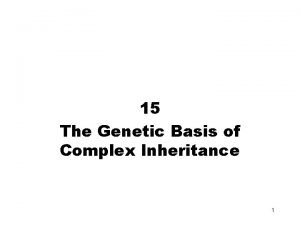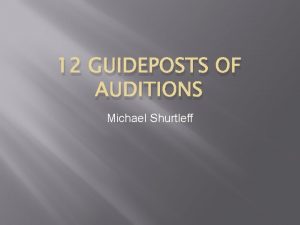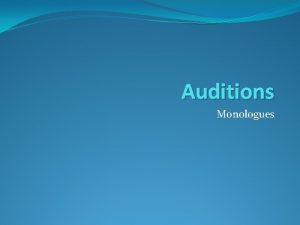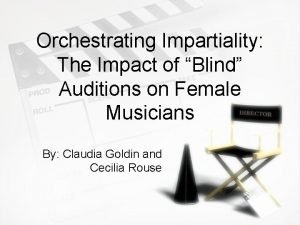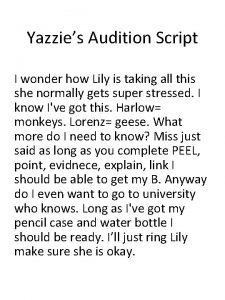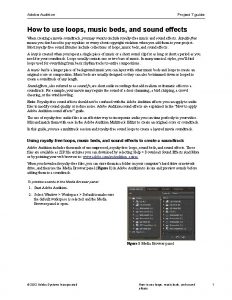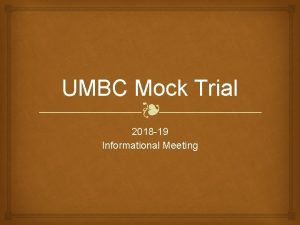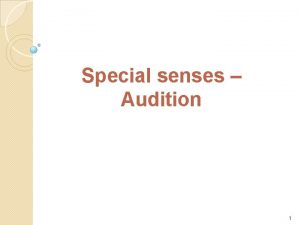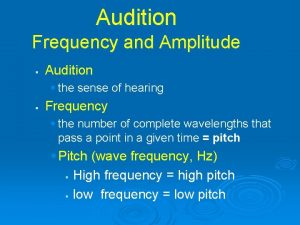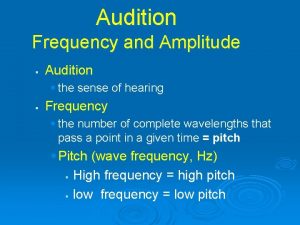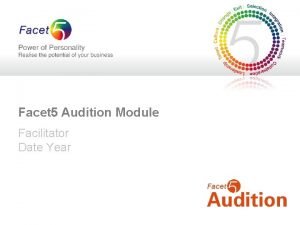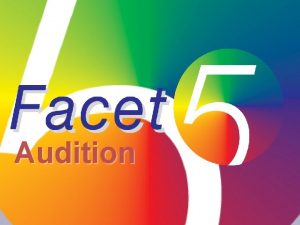HEARING Audition Frequency the sense of hearing the









- Slides: 9

HEARING

Audition § § Frequency § § the sense of hearing the number of complete wavelengths that pass a point in a given time Pitch § § a tone’s highness or lowness depends on frequency

The Intensity of Some Common Sounds


Audition- The Ear § Middle Ear § § Inner Ear § § chamber between eardrum and cochlea containing three tiny bones (hammer, anvil, stirrup) that concentrate the vibrations of the eardrum on the cochlea’s oval window innermost part of the ear, containing the cochlea, semicircular canals, and vestibular sacs Cochlea § coiled, bony, fluid-filled tube in the inner ear through which

Audition § Place Theory § § theory that links the pitch we hear with the place where the cochlea’s membrane is stimulated Frequency Theory § theory that the rate of nerve impulses traveling up the auditory nerve matches the frequency of a tone, thus enabling us to sense its pitch

How We Locate Sounds

Audition § Conduction Hearing Loss § § hearing loss caused by damage to the mechanical system that conducts sound waves to the cochlea Nerve Hearing Loss § hearing loss caused by damage to the cochlea’s receptor cells or to the auditory nerve

Audition § Amplitude required for perception relative to 20 -29 year-old group Older people tend to hear low frequencies well but suffer hearing loss for high frequencies 1 time 10 times 1000 times 32 64 128 256 512 1024 2048 4096 8192 16384 Frequency of tone in waves per second Low Pitch High
 Narrow sense heritability vs broad sense heritability
Narrow sense heritability vs broad sense heritability Narrow sense heritability vs broad sense heritability
Narrow sense heritability vs broad sense heritability Adobe certified associate certification programs
Adobe certified associate certification programs Shurtleff guideposts
Shurtleff guideposts Eliminar eco audition
Eliminar eco audition Audition by michael shurtleff summary
Audition by michael shurtleff summary Blind audition orchestra
Blind audition orchestra Audition script
Audition script Adobe audition loops
Adobe audition loops Mock trial audition tips
Mock trial audition tips
